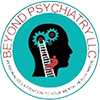Anxiety is a natural response to stress, characterized by feelings of worry, nervousness, or fear that are strong enough to interfere with one’s daily activities. While occasional anxiety is a normal part of life, anxiety disorders involve more than temporary worry or fear. For a person with an anxiety disorder, the anxiety does not go away and can get worse over time.
Anxiety Therapy


ANXIETY THERAPY
TYPES OF ANXIETY DISORDERS
Lorem ipsum dolor sit amet, consectetur adipiscing elit. Mauris vitae libero molestie, aliquet nibh eu, euismod massa. Morbi efficitur ut nisi ac fermentum. Aenean magna libero, varius vitae turpis.
THERAPY PROCESS
Treatment for anxiety disorders usually involves a combination of therapies:
- Psychotherapy:
- Cognitive Behavioral Therapy (CBT): Focuses on identifying, understanding, and changing thinking and behavior patterns.
- Exposure Therapy: Helps people confront their fears in a safe environment.
- Dialectical Behavior Therapy (DBT): Combines CBT with mindfulness techniques.
- Medications:
- Antidepressants: Such as SSRIs and SNRIs.
- Benzodiazepines: For short-term relief of severe anxiety symptoms.
- Beta-Blockers: Can help manage physical symptoms.
- Buspirone: Specifically for anxiety disorders.
- Lifestyle and Home Remedies:
- Regular Exercise: Physical activity can help reduce anxiety.
- Healthy Diet: Avoiding caffeine and alcohol.
- Sleep Hygiene: Maintaining a regular sleep schedule.
- Stress Management: Techniques such as meditation, deep breathing exercises, and yoga.
- Support Groups: Connecting with others who understand can be very beneficial.
